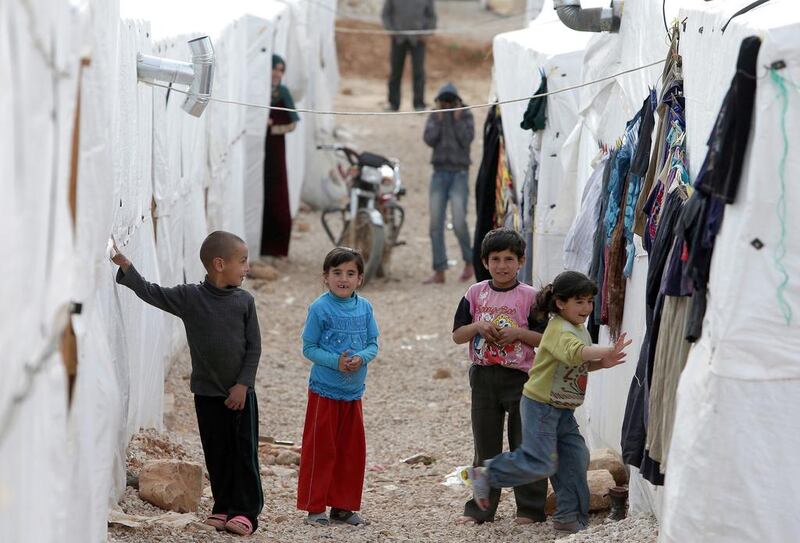For a brief moment in late November there was hope that Lebanon might elect a new president. The presidency has been vacant since May 2014, yet Lebanon’s political forces have been too divided to find a successor to Michel Suleiman.
The optimism followed reports of a meeting in Paris between a leading figure in the March 14 coalition, Saad Hariri, and a Maronite Christian politician in the rival March 8 coalition, Sleiman Franjieh. Mr Hariri sought to break the presidential deadlock by supporting the candidacy of Mr Franjieh, in a deal that would have brought Mr Hariri back as prime minister.
The cause of the deadlock has been the refusal of another Maronite politician, Michel Aoun, to allow his bloc to attend electoral sessions in parliament – which votes for Lebanese presidents, by tradition Maronites – unless there is prior agreement on his own election as president. In solidarity with Mr Aoun, Hizbollah has also not attended these sessions together with their allies, preventing a quorum.
Beyond that, Hizbollah’s aim is linked to regional events. The party wants to ensure that a new president will defend its military autonomy, on behalf of Iran, and feels that a shift in the balance in Syria to its advantage would facilitate such a choice.
Hizbollah sees its alliance with Mr Aoun as having strategic value. He enjoys substantial Christian backing and controls a large parliamentary bloc. That is why the party reacted with mistrust towards Mr Hariri’s opening to Mr Franjieh. Moreover, the fact that Mr Hariri’s initiative came after a Saudi green light and was backed by the Americans made it doubly suspicious.
Mr Aoun was said to be particularly angry with Mr Franjieh, seeing his candidacy as an effort to undermine his own chances of being elected. In separate meetings with Mr Aoun and Hizbollah’s secretary general, Hassan Nasrallah, Mr Franjieh reportedly heard Mr Aoun tell him that he was pursuing his candidacy, while Mr Nasrallah repeated that the party would continue to support Mr Aoun, as it has done for some time.
This indicated that the Franjieh project was, if not dead, then severely impaired. However, Mr Franjieh, a close ally of Bashar Al Assad, visited Damascus on December 13, returning to Lebanon “very comfortable”, as a Lebanese newspaper reported. What this implied, however, was unclear, though unconfirmed reports suggested that Mr Al Assad had not been encouraging.
Whether Syrian support would even be enough to guarantee Mr Franjieh’s election is doubtful. Iran and Hizbollah’s priorities will probably prevail. Being forced to abandon Mr Aoun for Mr Franjieh may be a red line at a time when Hizbollah needs a strong sectarian partner to advance its agenda inside Lebanon and isolate the Sunni community.
Also opposing Mr Franjieh is a coalition of Maronite-led parties other than Mr Aoun’s Free Patriotic Movement, including the Lebanese Forces and the Kataeb Party. Samir Geagea, the Lebanese Forces head, was the official March 14 candidate and was furious that Mr Hariri had shifted support to Mr Franjieh; and, worse, had done so behind his back.
All the Maronites were, additionally, hostile to a project whose main supporters were non-Christian politicians, including Mr Hariri but also Walid Jumblatt, the Druze leader. Unable to agree among themselves, the Maronites were yet incensed that others were trying to find a solution whose ultimate outcome could not but benefit the Maronite community.
Mr Franjieh’s fate is possibly now a matter of discussion between regional and western powers. The absence of a president has destabilised the political system and in the last year Mr Aoun’s ministers have pushed the cabinet to near collapse to secure his election. Tammam Salam, the prime minister, has hinted that unless the cabinet functions properly, he will resign, allowing it to operate in a caretaker capacity.
This has created widespread worry that unless Lebanese state institutions are soon reinvigorated, the country may sink into political instability and financial ruin. This could create a very dangerous situation, one exacerbated by the presence of well over one million Syrian refugees in the country.
Mr Aoun’s position is increasingly untenable. He is over 80, faces strong opposition from the Sunni community, and the longer he blocks the election of an alternative, the more Lebanon will suffer. Yet Mr Aoun has never allowed the impact of his destructive actions to change his mind. He will go to the limits to satisfy his unrequited ambition.
The question is whether Hizbollah can go all the way with him. The party has shown no signs of bending. However, the masks have fallen and Hizbollah will have to absorb the rising costs of Mr Aoun’s intransigence, at a time when its priority remains the war in Syria. If regional calculations change, a breakthrough is possible. But few Lebanese are holding their breath.
Michael Young is opinion editor of The Daily Star in Beirut
On Twitter @BeirutCalling





